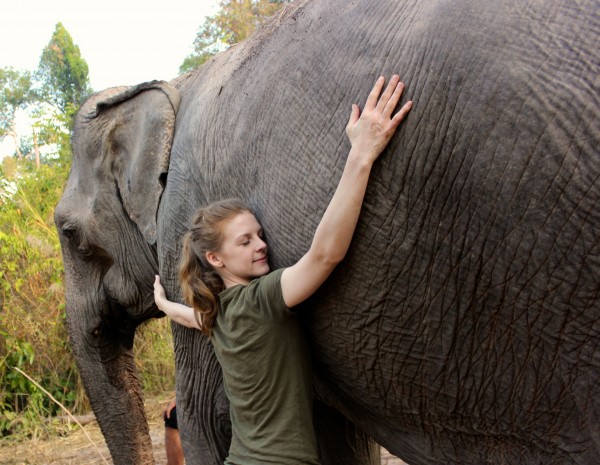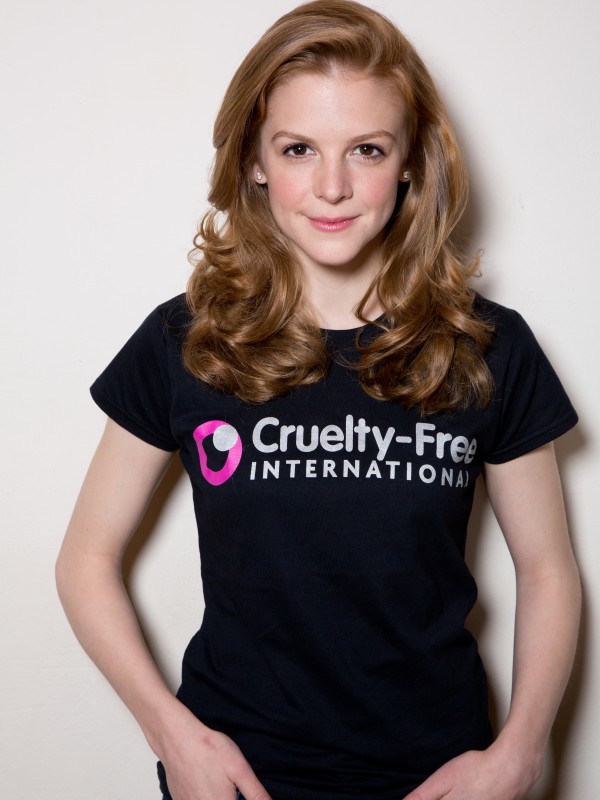My knowledge of elephant rehabilitation is, admittedly, quite limited. While I care very much about endangered species and preserving their environments, my involvement hasn’t gone beyond donating to the World Wildlife Federation, or posting a “Save the Whales!” link on Facebook.
So in talking to actress and animal supporter Ashley Bell — who is currently starring alongside Rebecca Hall in Broadway’s Machinal, and can be seen in Love & Air Sex, available now on VOD and in select theaters — I wasn’t sure what to expect regarding her latest endeavor, a documentary film entitled Love and Bananas. Lots of celebrities have “causes” that they are the “face” for, but don’t go beyond that. Would Ashley describe this charity with rehearsed lines, just like a scene from a script?


